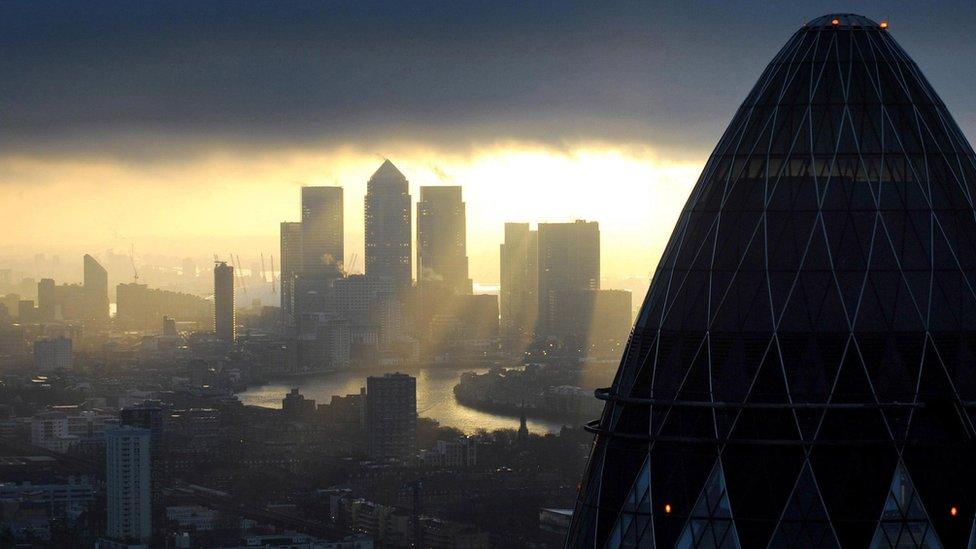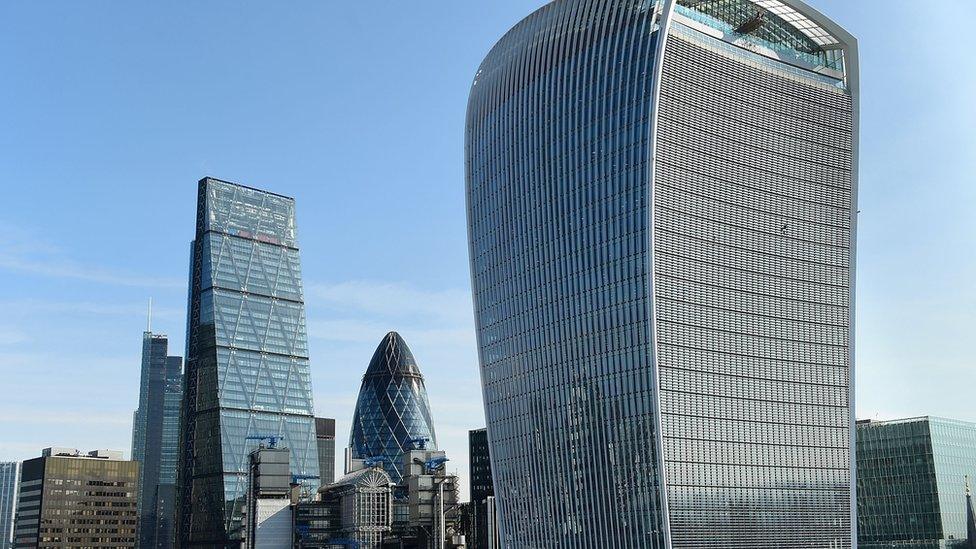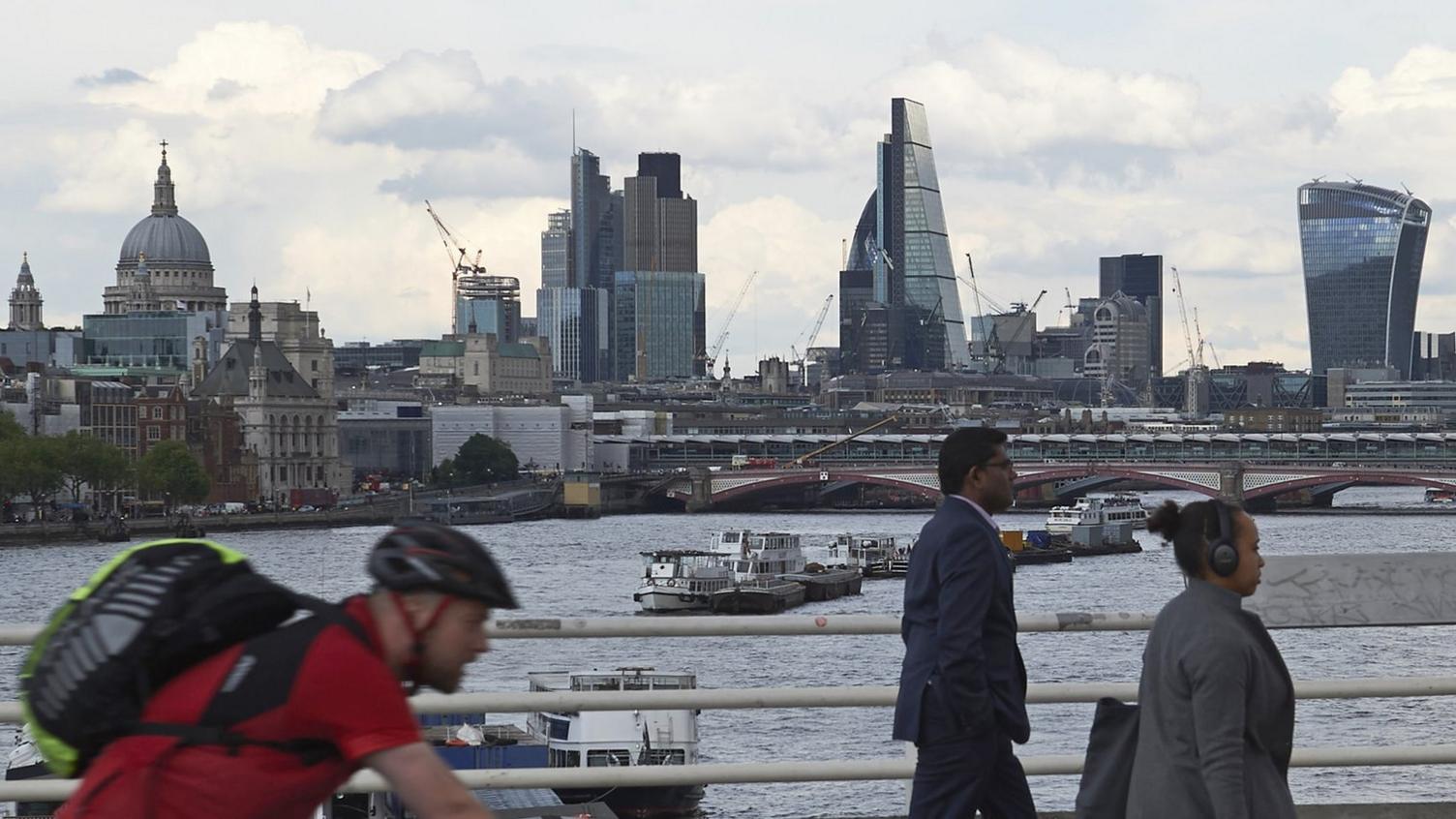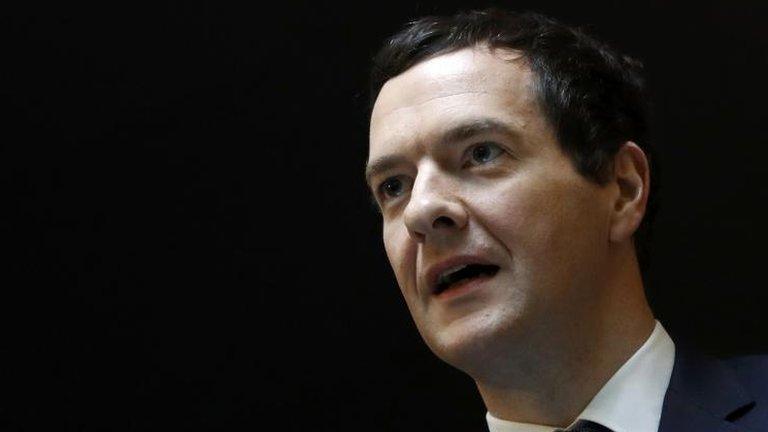Bank of England warns Brexit risks beginning to crystallise
- Published
Mark Carney's post-Brexit economy warning
The Bank of England has warned there is evidence that risks it identified related to Brexit are emerging.
In a major report it states: "There is evidence that some risks have begun to crystallise. The current outlook for UK financial stability is challenging."
The Bank has eased special capital requirements for banks, potentially freeing up £150bn for lending.
Eight major banks have also agreed with George Osborne to provide more lending to households and businesses.
The chancellor signed a letter, external with Barclays, HSBC, Santander UK, Virgin Money, Metro Bank, RBS, Nationwide and Lloyds for the banks to make extra capital available in this "challenging time".
'Major'
The Bank's change to capital buffers could help if uncertainty from the leave vote causes the economy to slow down and banks to be more cautious.
"This is a major change," said Bank of England governor Mark Carney.
"It means that three-quarters of UK banks, accounting for 90% of the stock of UK lending, will immediately - immediately - have greater flexibility to supply credit to UK households and firms," he said.
Mr Carney was speaking at a news conference following the release of the bank's six monthly Financial Stability Report.


The Bank of England has eased capital requirements for banks
Analysis: Kamal Ahmed, BBC economics editor
Although Mr Carney made it clear that the economic risks were still very visible - and indeed some, such as sterling's slump, were beginning to "materialise" - preparation ahead of the referendum was now paying off.
And, yes, he actually used the word "positive" for some of the effects seen post the Big Vote.
Financial markets had remained stable, government and business borrowing costs - even for the battered banks - had fallen and the decline in the pound had provided a boost for exporters and businesses that earned revenues overseas.
Investors may be concerned with profitability and economic growth, Mr Carney said.
What they didn't seem so worried about was the resilience of the whole system, which can be a much more toxic issue - as anyone who went through the 2008 crisis will attest.

The FPC said there were risks apparent in the commercial property market, with vital foreign inflows falling by 50% in the first three months of 2016.
It also flagged concern over "the high level of UK household indebtedness [and] the vulnerability to higher unemployment and borrowing costs" for some households.
House prices could also come under pressure, particularly if buy-to-let investors abandon the market, it said.
Buffer biffed
The FPC said that banks were now well capitalised and that the Bank of England would postpone demands for £5.7bn of extra financing to be held on the banks' balance sheets - known as the "countercyclical capital buffer".
The Bank would reduce the level of the buffer - set to be introduced next year - from the planned 0.5% of a banks' lending "exposure" to 0%.
The 0% rate would be maintained until at least June next year, the FPC said.
Given that banks leverage their lending, the FPC said the buffer reduction would allow banks to increase credit supply to households and businesses by £150bn.

Monitoring markets
The FPC also said it was acting to reduce any "fragility" in the financial markets and was ready to move further if necessary.
"Financial markets are doing their job. They are adjusting to this change. They have functioned pretty well," Mr Carney said.
The Financial Stability Report said that maintaining foreign investment, necessary to support the UK's historically high current account deficit, could become harder following the decision to leave the European Union because of a "prolonged period of uncertainty".
"These measures are really about Carney aligning the Bank of England's guns in case the UK economy enters a downturn. Markets are going to be reassured by his pro-activity," said James Athey from Aberdeen Asset Management Investment.
"He's not waiting for anything bad to happen but rather acting in case it does. It also means that both halves of the BoE: the monetary policy and financial policy are pulling in the same direction."
- Published5 July 2016

- Published29 June 2016

- Published4 July 2016

- Published4 July 2016
